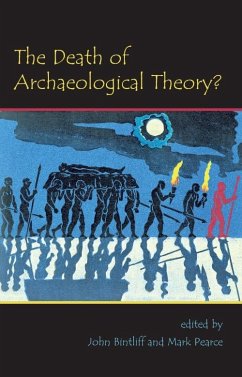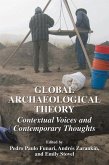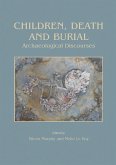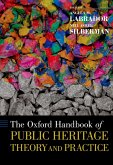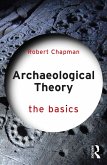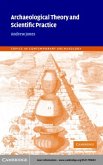The Death of Archaeological Theory? addresses the provocative subject of whether it is time to discount the burden of somewhat dogmatic theory and ideology that has defined archaeological debate and shaped archaeology over the last 25 years. Seven chapters meet this controversial subject head on, also assessing where archaeological theory is now, and future directions. John Bintliff questions what theory is and argues that archaeologists should be freed from 'Ideopraxists', or those who preach that a single approach or model is right to the exclusion of all others. Marc Pluciennik again questions what we mean by archaeological theory and argues that the role of intellectual fashion is underestimated. He predicts pressure from outside archaeology to redirect our dominant theories towards genetic and human impact theory. Kristian Kristiansen argues that theory cannot die, but it can change direction and sees signs of a retreat from the present post-modern and post-processual cycle towards a more science based, rationalistic cycle of revived modernity. To Mark Pearce the most striking thing about the present state of archaeological theory is that there is no emerging paradigm to be discerned; he proposes that Theory is not dead, but has instead become more eclectic and nuanced. Two papers offer a different perspective from other areas of the world; Alexander Gramsch examines the issue from the German tradition and shows that in Central and Eastern Europe not only has Anglo-American Theory had limited impact, but current discussions on the future of method and theory offer a broader view of the discipline in which older traditions are seen to form the foundation. Kent Flannery and Joyce Marcus demonstrate that American archaeologists do not foresee the death of a genuinely archaeological theory (which they believe has never existed) but fear the real catastrophe would be the death of anthropological theory, because some anthropology today has become decidedly anti-scientific, rejecting not only the controlled comparison and contrast of cultures, but also the use of generalisation, both of which are crucial to theories and models and without which the longue durée will always be invisible.
Dieser Download kann aus rechtlichen Gründen nur mit Rechnungsadresse in A, B, BG, CY, CZ, D, DK, EW, E, FIN, F, GR, HR, H, IRL, I, LT, L, LR, M, NL, PL, P, R, S, SLO, SK ausgeliefert werden.

